Burka Avenger, a children’s cartoon series featuring a teacher-by-day, superhero-by-night woman protagonist, debuted on Pakistani TV on July 28 to a crowd of fawning internet commentators. Prior to its first episode, which featured Jiya attacking Taliban-like evildoers to protect girls’ access to education, the TV series already had over 20,000 fans on Facebook, an iPhone game, a music video and merchandise.
https://www.youtube.com/watch?v=8pdbshf4iPE
Central to much of the discussion – or “controversy,” as many have chosen to frame it – about this new superhero is her choice of the burqa as her disguise. Does it “reappropriate […] a symbol of oppression into a force for good” or “brainwash girls into thinking that a burka gives you power instead of taking it away”?
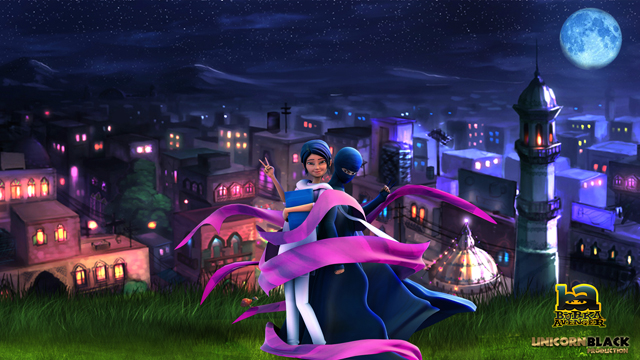
The show’s website says that its main aims are “to make people laugh, to entertain and to send out positive social messages to the youth,” leaving vague whether the burqa is meant to be part of these “social messages” and if so, how. Creator Haroon Rashid, a 40-year-old Pakistani pop star, was quoted in an interview with NPR responding to criticism of the Avenger’s costume.
She doesn’t wear the burqa during the day – she doesn’t even wear a headscarf, or a hijab or anything like that; she goes about her business as a normal teacher would. And so she chooses to wear the burqa, she’s not oppressed… and on the other end of the spectrum, a lot of female superheroes in the West are objectified, and sort of sexualized in their costumes, like Catwoman and Wonder Woman, and that certainly would not work here.
Nobody is compelled to wear the burqa in Pakistan; nobody is compelled to wear the headscarf or hijab, like they are in other parts of Muslim countries. But some women who do choose to wear the burqa or do choose to wear the hijab, the majority of them do it out of choice, and I’ve learnt this over the years.
Haroon similarly emphasised in an NDTV interview that the choice of the burqa was not intended to do more than give the show a “local, relatable flavour.” The show will feature issues that go beyond education and religious fundamentalism, including sectarian violence, child labour and caring for the environment.
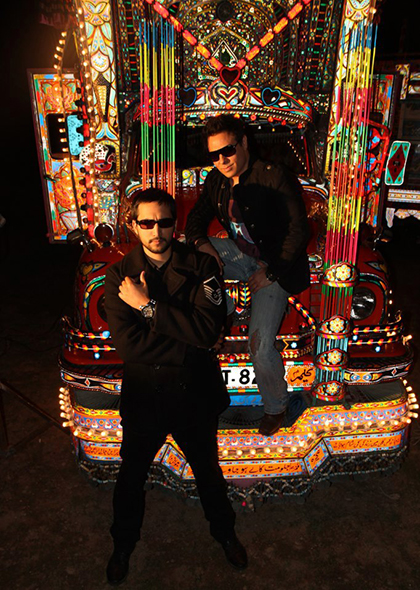
via Burka Avenger FB
Despite what’s been said in interviews, it seems improbable the team went into this believing that a burqa-clad superhero would be seen as simply a mark of “culture.” The response to this has taken a life of its own; in other words, it’s not a non-issue just because they say it’s one. A number of red flags came up for me while contemplating Haroon’s defence of the cartoon particularly in his uncritical reiteration of several flawed binaries.
- East / West: Critique of the portrayal of women superheroes is entirely fair, but let’s not pretend that Jiya is neither “objectified” nor “sexualised.” Not only is her “cool, sleek burqa” surprisingly figure-hugging for a modesty garment*, Jiya is a female character literally identified by what she wears. Is this really subversive? The use of Clash of Civilisations-type speak, as if the East and West are clearly defined, fundamentally different and internally homogenous entities, is also suspect, especially when it’s meant to make a point about (the treatment of) women in either.
- Good Muslim / Bad Muslim: The Good Muslim is “normal” and “doesn’t even wear a headscarf.” The Good Muslim Countries don’t force anyone to do anything. The Good Muslims in the Good Muslim Countries would like you all to see that they have all their Good Modern Liberal Muslim Values lined up, please, because they’re nothing like those Bad Backward Muslims. This dichotomy begs two questions: 1. What is “good” (“modern,” “moderate,” “liberal”) or “bad” (“traditionalist,” “fundamentalist,” “extremist”) and whose standards dictate this? 2. Whenever you say “I don’t do _____,” what is it that you’re trying to say about those who do?
- Oppressed / Liberated: Oppression is not an either/or situation, nor is it even a spectrum in which liberation is measured by degree. Taking an objectivist view to “liberation” – i.e. that “liberation” is a certain end-state, and it looks like _____ (in this case, being a non-hijabi schoolteacher) – denies the complexities of situational context and non-universal values. To couch it in the language of “choice” is particularly problematic, because choices aren’t made in a vacuum, y’know?
* Note on “modesty” and the veil: I am slightly uncomfortable judging Jiya’s dress in terms of “modesty,” for there is an argument for not being hung up on “appearances and legalistic rulings” when it comes to perceiving the veil from a religious perspective.
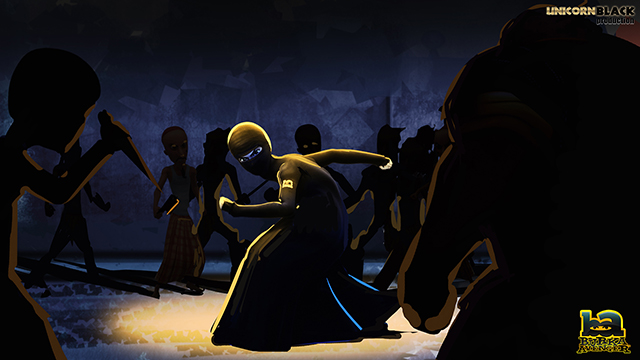
More fundamentally, though, why is the question still “why the burqa?”
The burqa almost inevitably comes up in any discussion of the Muslim Woman Experience as the embodiment of Muslim Woman’s Oppression. To be clear: there is no “Muslim Woman Experience” and there is no “Muslim Woman’s Oppression.” There is Islam(s) and women and oppression, which intersect in an infinite number of ways, and with a tonne of other things besides.
I am skeptical about Haroon’s attempt to present the deeply culturally embedded relationship between the burqa and modest dress/behaviour – as well as the other consequences that come with this specific expression of religious practice – as merely a tangential one. It cannot be glossed over that the burqa holds religious and cultural significance that makes it more than an accessory to be taken on and off at will. Burka Avenger is popularly read as a counter-narrative to the rhetoric that burqas are inherently oppressive, but arguing that the burqa can be simply flipped around to be a source of power is just as misguided.
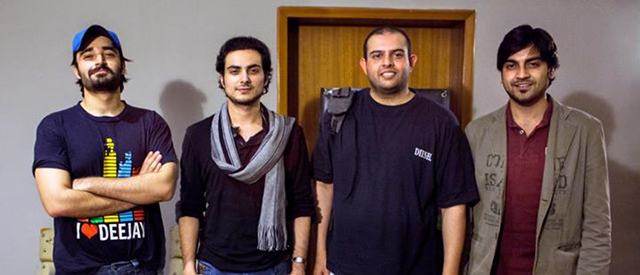
via Burka Avenger FB
So what’s troubling about counter-arguments like these is that they do not shift attention away from the burqa altogether but instead treat it as a locus of liberation. As if Muslim women who don’t cover our heads are proven not to be oppressed. Or if we choose to cover our heads, then clearly we’re free.
As Kawthar Al Qattuta wrote in response to the Qahera vs FEMEN comic, similarly featuring a hijabi superhero, that made its rounds on Tumblr a while ago:
The discourse on plighted Muslim women often focuses on the physical: the forced veiling, domestic violence, segregation, forced marriages and so forth. This focus on the physical masks the inherent bigotry in this rhetoric: the colonialism, the racism, the paternalism, the authoritarianism.
Likewise, when the counter-narratives offered by Muslim women are relegated to the realm of the physical, it contributes to that lack of focus and skirting around the real issues at hand.
Criticism and praise of the Avenger’s burqa are characterised as “feminist,” but I’d argue that they’re far more neo-orientalist. This isn’t as much about the patriarchy as it is about continuing to perceive Muslim women as Other. This is especially true of commentaries coming from the outside, though it is also entirely possible for those within to be guilty of the same. (This is seen, for example, in the Good Muslim/Bad Muslim binary in which you disassociate yourself from “less desirable” parts of your own culture to make yourself more palatable to dominant ones.) Asking whether the burqa is “cool or conformist” completely misses the point – why are we still intent on reading so much into it? Why do we continue to reify the burqa as a symbol of Otherness from which we make reductionist conclusions about actual women’s realities?
Fixating on a Muslim woman’s dress, no matter which side you’re on – none of this is subversive or radical.
Fixating on Muslim women, period – none of this is subversive or radical.
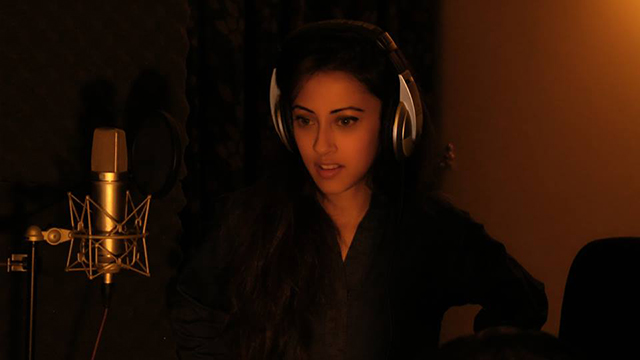
via Burka Avenger FB
It is necessary to note that there is a gaping hole in both my own analysis and that of most talk about this: what is the Pakistani response to this Pakistani TV show? There are issues in Burka Avenger that go beyond Jiya’s dress, including representations of national culture (the shalwar kameez & dupatta are more common than burqas in the South Asian nation), the rural/city divide, and so on. These critical narratives are not mine to take on, but they are very much worth blocking out the noise about the burqa to listen to.
Now, I’ve saved the best for last. See Jiya in superhero form?
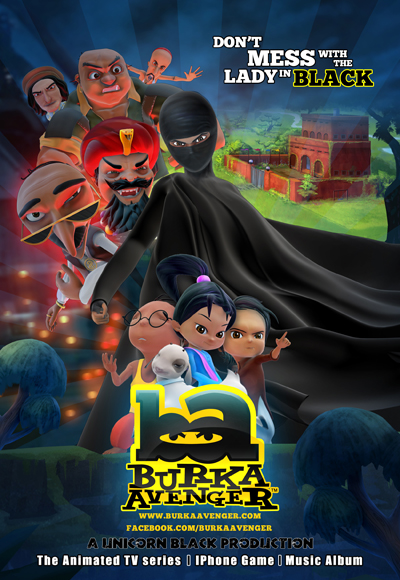
That’s a niqab, not a burqa. (While frequently used interchangeably, burqas are a full-body covering with a mesh screen in front of the eyes too.) Not all headdresses are made equal. Did someone say something about homogenising the Muslim Woman Experience?



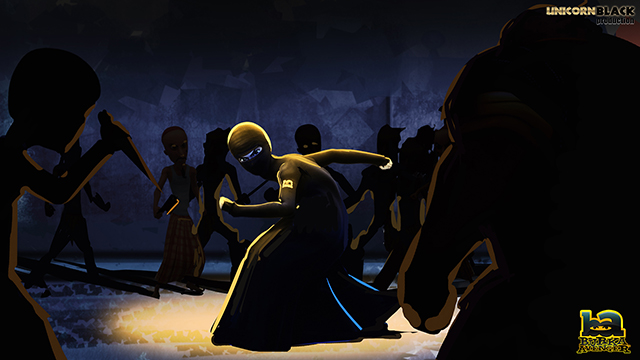




Comments
I heard this story on NPR. It’s great to put a picture with the sound. It also raises some good points on how American female superhero’s are always so sexualized.
I love the way you approached both sides of the dialogue on this- focusing instead on the productivity of the dialogue itself. You brought up some excellent and deep points. I wonder if the main character herself within the show will have to provide any sort of justification for why the burqa is her superhero outfit of choice? Like an origin story. I’d be interested to see how that would fuel or temper any of this.
Re the burqa being skintight – maybe there’s something about how if it was an actual burqa she wouldn’t be able to move so deftly?
The Good Muslim vs Bad Muslim thing is interesting for me, given that I grew up in a country that made a HUGE deal about being Good Muslims (Malaysia) because they wore hijab and did everything the Arab way and blah blah, and where there was institutional and societal disdain against Muslims like my parents who came from places like Bangladesh because they *didn’t* cover up or did Islam differently. We were told we were ‘doing Islam wrong’.
And even now with the Muslimahs vs Others battles – more recently #muslimahpride vs Femen, but also SlutWalk – you have to choose one side. “I’m liberated by covering up and all Muslims think so!” vs “All muslims are oppressed!”. No room for “you both suck.”
In one interview Haroon said something about wanting it to be like a “ninja costume,” and the sound of my palm hitting my face resonated for miles around. I am rather fascinated by how it works though – she never trips! It becomes a magical flying squirrel thing! Though I guess these are universal cape problems: http://www.youtube.com/watch?v=AJnFx51hOFY
The Good Muslim/Bad Muslim dynamics you raise are slightly different from Haroon’s point. Here, “good” = “modern, liberal” Muslims who e.g. don’t wear headscarves, “bad” = Afghanistan. (He name-checked them, though it’s also generally implied he means those in more rural Pakistan for that’s where the burqa is worn.) But I definitely understand where you’re coming from – not only is there a strong sense of doing Islam “right” or “wrong,” there’s a very strong tendency to say, “that’s THEIR Islam, and my Islam is different” (where “different” = “superior” whether in being “truer” to Islam or closer to secular liberalism). I’ve been guilty of this myself plenty of times before.
Interestingly, Malaysia is often held up as an example of a Good Muslim Country because y’know, ~democracy~(/trade relations with the US) and things. I mean, the illusion works as long as no one listens to what Mahatir has to say about Jews.
I am 200% with you on “you both suck.” I constantly want to enter these debates screaming YOU ARE ALL MISSING THE POINT.
“YOU ARE ALL MISSING THE POINT” ZOMG YES
Interesting how “Good Muslim”/”Bad Muslim” context really changes depending on the dominant cultural norms of Good vs. Bad.
Also, it’s really odd that the show’s creators would confuse the burka and niqab. And considering that the show and all it’s media is in English, I’m wondering who the intended audience is? But as you said, it really feels like I can only say so much, being so far away from it.
This was a really great article, btw.
Nvm, found it in urdu.
I was curious about that too. As you noted, it’s an Urdu-language show (currently) produced exclusively for Pakistani TV.
I get the impression that Haroon & co. are not as in touch the cultural significance of the burqa/niqab as they purport to be, based on what I know of Haroon’s background (British-born, city-dwelling – highly unlikely to have in-depth experience with the areas & people of Pakistan for whom the burqa/niqab is a big part of their lives) and the way he talks about all of this in interviews. But this is of course highly speculative and could be completely unfair of me, because I don’t know these things either.
I mean, for all we know they could’ve chosen “Burka Avenger” just because it sounds better “Niqabi Knight” (except oh wait, NO IT DOESN’T) and then crossed their fingers no one would notice. Part of me wants to dismiss it as a minor issue of semantics but mainly I just find it a rather weird call.
The clingy-est burka in superheroics still belongs to Dust of the X-Men. (And I’m not even going to start on that code name/superpower)
I wouldn’t call any piece of media whose production team is 100% male feminist, or consider it in any way representative of women’s experiences – or useful in women’s liberation.
I cannot verify that this is a 100% male production team – see list here: https://www.facebook.com/photo.php?fbid=597661090264526 – because of my unfamiliarity with Pakistani names (and because it would be problematic for me to make assumptions based on that anyway). If this were true, and I do at least suspect that the team is overwhelmingly male, then I too think that it would be a problem.
But it is not ALL of the problem, nor is it the problem raised in this discussion. There is a necessary limit to the usefulness of identity politics here because the team may be distanced from the issues at play by virtue of gender, but they are far closer to them than most in terms of, for example, nationality, religion and culture.
This is not only a feminist issue. Subsuming issues specifically affecting Muslim women (and other similarly marginalised people within already marginalised groups) under the broad umbrella of Battling the Global Patriarchy without an awareness of situational complexity, especially with regard to race and religion, is exactly the problem I’m trying to highlight.
Yeah, that’s the thing, not knowing a great deal about Pakistani names I assumed Haroon was female at first, he was making statements that really came across like he really knew what women felt and by extension I assumed he was one. All else aside I don’t think a production team like this can really actually examine what life is like for women when none of them are women.
registered on this site just to comment and add this, which i found after reading your article and googling “burqa”:
http://www.hypable.com/2013/08/05/lady-gaga-burqa-artpop/
i have no other words
News of that broke right after I wrote this and my face, man, you shoulda seen it. Miriam has covered the “naked burqa” trope before in a post about FEMEN vs Muslimah Pride (http://develop.autostraddle.com/femen-vs-muslimah-pride-fighting-for-the-voices-and-bodies-of-muslim-women-authors-draft-172860/) and I expect a million other people are gonna take on Gaga so I don’t have to, because caring about Gaga is so exhausting.
Also, hi! I hope you stay around.
I actually used Gaga’s burqa picture in that article. Honestly, though, when something is so ubiquitous that it becomes a trope, nitpicking individual uses serves no purpose. It’s just enough to point out someone is using a trope in place actual creativity.
Funny enough, I feel like this illustrates Fikri’s point about the neo-orientalism in this debate. The idea of an empowered, burqa/niqab wearing superhero is something that is tailored for Muslims in the places where derogatory images of burqas are all too common. But how common is Naked Burka Lady in Pakistan?
(No, really, if it’s common, I’ll drop it.)
Its not common. In fact the burka isnt common in major cities. The women that do cover their heads do so with a loose dupatta (scarf) or traditional hijab. Burkas are in the rural areas and naked burka lady is only a trope that exists in white feminists and creepy fetishists minds.
Well actually I do think that there are “good Muslims”and “bad Muslims” just as I think that there are “good Christians” and “bad Christians” and it has nothing to do with dominant cultures but with universal human rights. If you use your religion to suppress other people then that makes you a bad Christian/Muslim/any religion.
It’s also important to remember the context, I think. Is the show going to be completely problem-free? Of course not, none are. Is it a huge step in the right direction? I think so.
And to a lot of women, choosing the burqa or any type of veil is a deeply personal choice that does liberate them. Having the choice is liberating, and having the right to make your own decisions is a core value of feminism. The main character seems to be picking it completely on her own (if she’d a superhero in the traditional sense, I’d imagine no one knows she’s doing it at all, so.) I think that we in the West tend to assume that all women don’t want to wear it themselves, or if they do it’s because they’re “brainwashed”, so I think keeping this whole rant-y paragraph in mind when talking about this show’s important.
So I know you mean well, but:
1. “we in the West” and Muslim women are not mutually exclusive groups. Thinking about this in an us/them way is exactly the problem. (As a side note, I’m not from the “West.”)
2. The “choice” issue is touched on briefly in my article, and very, very well here: http://feministing.com/2011/04/14/the-limits-of-a-woc-feminist-stance-within-the-context-of-global-racism/
3. I really wrote this whole thing to say we should *stop* talking about the veil in these ways.
Is anyone surprised the all-male team at Union Black who developed this cartoon?
You see this is what pissed me off about this article – it now allows white women an opportunity to be as racist and Islamaphobic as they want and receive pats on the back for it. The white English woman next door to me wears a ton of make-up and heels because ‘her man likes it’ but I suppose thats just her being her isn’t it? We shouldn’t judge her but you can judge a wide variety of Muslim women based on newspaper articles and bigotry.
Firstly Fikri is wrong that the team behind the cartoon is all male – numerous names are female. I know this as an actual Pakistani Muslim who happens to be gay. Secondly this has a lot of support in Pakistani circles because it heralds a new change in TV show making in Pakistan. It is the first time that a cartoon of this calibre has been produced in Pakistan and its main character is a woman. On my FBook page I have seen unanimous praise for this by different (admittedly middle class) Pakistani women and men. Thirdly you criticize Haroon for creating this show when its obvious that without male support it would not have been made. Would I have preferred it that a Pakistani woman made this? Of course. But in our deeply patriarchal and misogynistic society this wouldn’t have got off the ground without male backing. Sad but true. And if we can praise white men for being allies then why shouldn’t black and brown men be given the same chance? Why are they held to a different standard to white men? I await your criticism of Lady Gaga’s latest song which will no doubt lead to white teenagers wearing burgas as a fashion statement (while real Muslim women get beaten and have their unborn children killed for wearing burqas in Western nations) and making racist jokes. Carry on.
First, there are many reasons why this show is a large step forward:
– the main character is female
– she fights “bad guys”
– she isn’t sexualized per se
– she fights for education rights
– the production team has men and women
But, that’s not to say that the show deserves universal praise. I believe in holding shows like this accountable, especially if they want to advance the rights of women. We say feminism is about choice (the choice to wear or not wear the burqa/hijab/bikini/makeup/whatever, the choice to marry or not marry, the choice to stay at home or have a career, the choice to have children or not, the choice of romantic partners). But it’s more complicated than that, especially since certain norms are pressed as good (makeup and sexualization in the West; modesty and chastity in many other cultures including Muslim and Hindu culture). Problematizing the representation of women in a show is not akin to bashing. Complicating our understanding and discussion of the burqa is not the same as Islamophobia. Criticism is not equal to condemnation.
At the same time, you’re right that people do need to be accountable for their own subject positioning and privilege when entering into such a discussion, especially for white women without a lot of knowledge of Islamic culture.
Judging by the comments here little knowledge is pushing it. Whenver there has been posts on Islam the comments verge from ignorant to downright bigoted. Amazingly enough the comments on Judaism and Christanity are much more respectful and well thought out. I wonder why that is. Also I never said the show should be universally praised. My annoyance was that the show was being dismissed outright because the shows creator is a man which coming from the website that worships casual racist Joss Whedon and staunch sexist Steven Moffat is incredibly hypocritical. Also had the author done her research she would have discovered that the team does have women on it.
Actually, I specifically argue *against* dismissing the show based on the genders of the creator/team members in my response to Andreea above. Whether or not the team had women in it was not an essential part of my argument in the original article, and it’s not something I brought up in it.
I’m also choosing not to reply to Sheah because I trust most people are able to see the problems in that comment on their own. Not replying to comments isn’t tacit endorsement, nor is replying to them critically immediate condemnation – we’re talking to you because we believe that this is a worthy conversation to be having.
I didn’t reply to Sheah because you already pointed out the glaring flaws in her comment. I’m not saying what she said was ok. It’s not. Not even close, especially that question about why anyone would cover up something beautiful. Not. Ok. But you called her out on it, darum. And you’re right about the fact that many comments on Islam are ignorant and bigoted while comments on Christianity and Judaism are more respectful. Also not ok.
But I do think you missed the point of the article, which was to complicate our understanding of the show and what it means in a cultural context, not to dismiss it as inherently sexist.
I think your criticism of the article is a tad off. The article seemed to be primarily about the discourse around the show rather than about the show itself. The whole point of the article, as I read it, was “look how weird and Western all of this discussion is, why is it so focused on neo-orientalism, where is the actual Pakistani response?” It read to me as critical of the dialogue around the show being dominated by, as you said, clueless white women.
I’m curious to see what you think of this article: http://develop.autostraddle.com/fuck-burqa-swag-why-lady-gaga-and-i-are-never-ever-ever-getting-back-together-188976/
If we just focus for one short moment solely on superhero logistics, a burqa (or niqab) is a super logical choice for a costume, especially w/r/t the maintaining of a secret identity and escaping bad guys by blending into a crowd. Maybe modify it a bit to be less of a potential tripping hazard, but otherwise I feel like this is the perfect superhero attire.
Also she fights bad guys with books and pens, so she is pretty much my favourite.
I agree with you about the blending into a crowd and secret identity stuff, but have you ever tried running in a burqa or similar garment? It’s not funsies.
P.S. I’m not saying this to be an ass. I also agree with Edna Mode that capes are just not practical for super heroes, and neither is long hair.
I’m with Sindu on this. It’s perfect for disguise but not so for mobility BUT ALSO see what I said to Tiara earlier about the cool flying thing it does. (But really: the practicalities of costumes is a general superhero problem. Because y’know, superheroes have general problems too.)
The books and pens thing is definitely neat but it is SO WEIRD that Haroon referred to this as “nonviolent” (in the NPR interview) because I’ve now watched a tonne of clips from the show and I can 200% verify that those pens are TERRIFYING. Mainly this guy is bad at interviews maybe.
I don’t see the difference between pens and tiny little javelins. It’s still violence even if you smack someone with a book.
Wow what, nonviolent? Just because the thing you are hitting someone with happens to be a symbol of knowledge does not make it hurt less. Weird.
Fikri, it is so good to see you writing things for AS. It makes my insides all warm and happy.
Just popping in to drop a little CHERRY BOMB pride on everyone!
re: reaction in pakistan – mixed. from the liberal circles that i know, it’s much of the same dialogue-counter dialogue outlined in this article (can the burqa be reclaimed? is the burqa inherently problematic? etc).
i know some people may be surprised or shocked by the disregard by the creators of the connotations of the burqa, but i’m not really surprised. it’s a thing, here, you know? and i don’t mean that in terms of justifying it…i just mean it in terms of the burqa being an accepted part of the culture and there aren’t a lot of discussions outside of select liberal academia-type circles about the burqa. hence you can’t talk to the creators about its connotations and expect them to talk to us in our language of how problematic it could be.
Thank you for this! I did come across quite a bit from Pakistani feminists while writing this — a couple of whom are linked to here, like those featured in the NDTV interview — but like you said, most were polarised on the issue of the burqa as well. I was wondering if there was more outside of all this I was missing out on, especially as I don’t speak Urdu, since people like Bina Shah touched on other issues but did not elaborate on them (in favour of focusing on the burqa instead).
“hence you can’t talk to the creators about its connotations and expect them to talk to us in our language of how problematic it could be.”
I agree with this. Interviews with Haroon were often on the lines of:
“So some people are saying the burqa…”
“I disagree! It’s nothing!”
“On the other hand, other people are saying the burqa…”
“Still disagree! It’s nothing!”
His unwillingness to engage with criticism of his choices was frustrating, but not altogether surprising. It definitely came across that this was a complete non-issue to him — but I feel he failed to appreciate that “normal part of culture” does not mean “lacks any meaning.” But yeah, in general I wouldn’t centre the Unicorn Black team in all this because it’s gone far beyond their intentions.
right. so, pakistani feminists, like i said, are having quite a lively dialogue about this and they had been having one about the burqa and the dupatta before burqa avenger came along. i’ll reiterate, though, that pakistani feminists are a small section of society and this means that the dialogue is actually happening in a small (sub)-section of society and pk feminists have diverse opinions and stances on the issue. even within the (let’s just call it) camp that does not favour the burqa or niqab, there are a variety of reasons and not everyone agrees on the reasons why it’s not a good thing. same goes for the other camps.
this does not mean that everyone is taking burqa avenger lying down, but it does also mean that the comments section here has more feelings about this issue than the average pakistani.
the impact of burqa avenger will probably have to be seen over time. it goes beyond the burqa, which a lot of people focus on (full disclosure: i’m not pro-burqa) when thinking about it. a lot of discussions leave out the “avenger” part. pakistani kids don’t have a lot of local cartoon superheroes. and, broadly, the security/crime situation in the country is worrisome. as i write this i’m thinking about the killings of Mughees and Muneeb, who were suspected of being robbers (http://tribune.com.pk/story/45537/mughees-and-muneeb-were-not-robbers/). the breakdown of law and order means that a lot of people are looking for justice and role models.
on a related point, i’ll explain some of the terms Bina used — wadera and zamindar. while Bina’s saying that the real problem are the Taliban, well, no. the Taliban weren’t aroud for the majority of Pakistan’s history and during the time, yes, in rural areas, the waderas and zamindars (influential and land-owning MEN) have supressed education and that’s definitely something that can’t be denied. rural Pakistan is feudal, so the landowners have the power and sometimes clerics do, or other patriarchs considered to be wise/influential. education provides the landless/farmers with the ability to see beyond the laws of feudal societies and also provides some degree of social mobility if the landless move to cities. it is in the economic interests of the landed to exploit the landless and many have done so for a long, long, time. so: yes, the Taliban are terrorizing people and aren’t pro-education but this is largely in the province of KyberPakhtunKhwa (aka KPK, it borders Afghanistan) and are suspected to have done this on other parts of Northern Pakistan, and may be doing so in Southern Punjab too. That being said, the Taliban haven’t simply gained power or influence because they have guns, it’s because they’ve gone into areas that have historically been economically impoverished. and yes, that means that these areas haven’t had the best of educational resources leading to greater economic opportunities to begin with, either. the influence of the Taliban isn’t purely ideological — it’s a strategy for economically impoverished people to gain social mobility, respect and power in many cases.
which means that if the burqa avenger is fighting a v/wadera, she is also fighting the status quo in a lot of Pakistan, and she is fighting a source of patriarchal power and authority.
now that i’ve touched on the economic/historical issues, you may see that burqa avenger is, in a way, combating the core reasons why some women are forced to wear the burqa in the first place.
final note: a very visible source of the breakdown of law and order in the country is that people of privilege are often above the law. not all waderas or landowners are bad — in fact, yes, you can say that wadera is a sindhi term (sindh is one of the provinces of Pakistan) and so hating on a wadera is at least mildly racist and problematic — but one has to understand that the elected officials in our assemblies are, in most part, landowners. so, with a notoriously corrupt government and the generally massive failure of the courts to effectively prosecute criminals with privileged backgrounds…well, the villain is not surprising.
i hope this comment-essay will add a little more context. Fikri, you’ve done a good job outlining the main burqa debate.
I have nothing to add except that your comment-essay made my day. I really appreciate you having taken the time to write this/contextualise things.
What’s up, I check your new stuff on a regular basis.
Your story-telling style is awesome, keep doing what you’re doing!